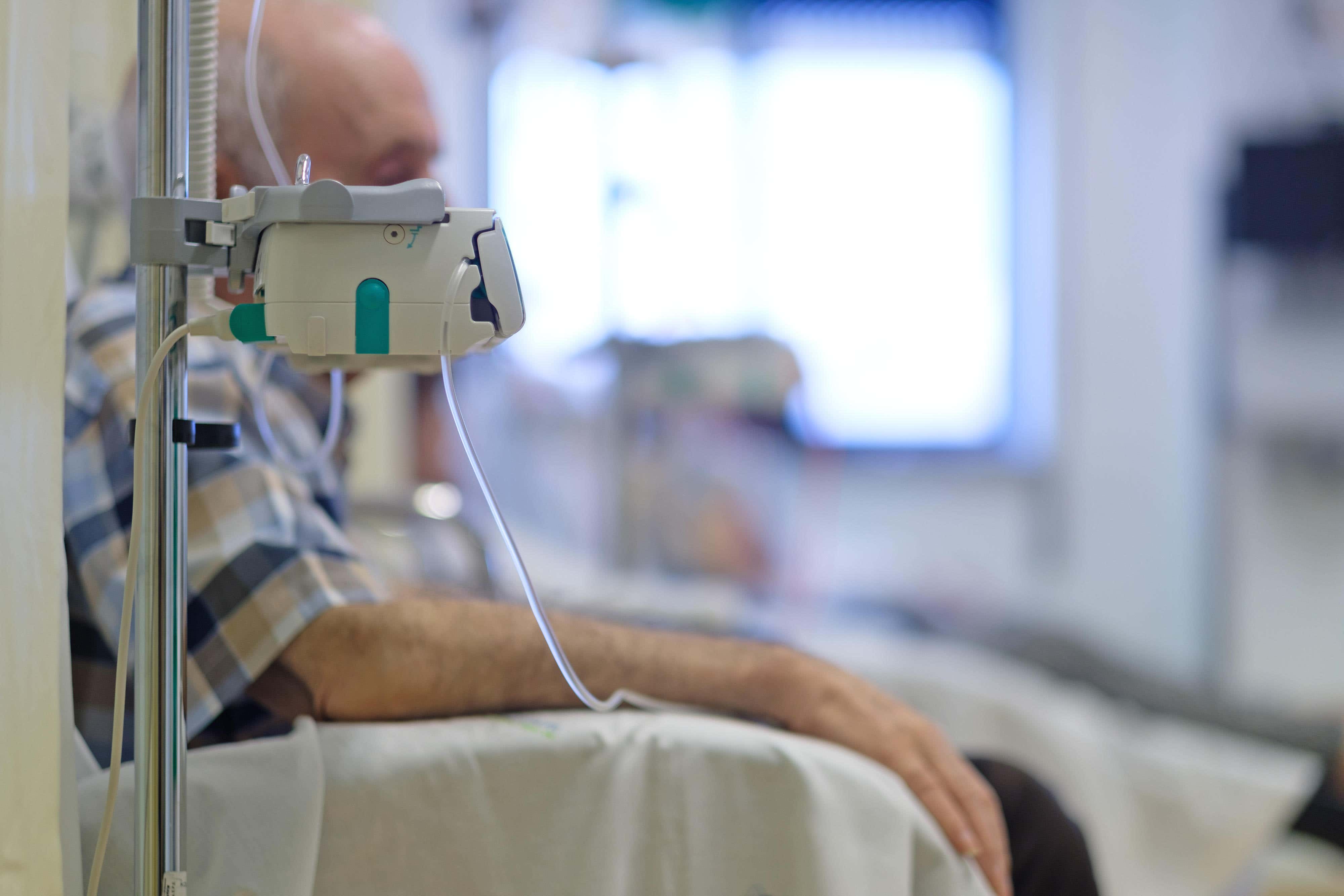Thousands more cancer patients waiting longer for NHS treatment amid record delays
More than 7,000 patients were waiting more than two months to start treatment in January – the highest figure on record

Your support helps us to tell the story
From reproductive rights to climate change to Big Tech, The Independent is on the ground when the story is developing. Whether it's investigating the financials of Elon Musk's pro-Trump PAC or producing our latest documentary, 'The A Word', which shines a light on the American women fighting for reproductive rights, we know how important it is to parse out the facts from the messaging.
At such a critical moment in US history, we need reporters on the ground. Your donation allows us to keep sending journalists to speak to both sides of the story.
The Independent is trusted by Americans across the entire political spectrum. And unlike many other quality news outlets, we choose not to lock Americans out of our reporting and analysis with paywalls. We believe quality journalism should be available to everyone, paid for by those who can afford it.
Your support makes all the difference.Thousands of cancer patients are waiting too long for treatment as the NHS records its worst-ever delays.
The number of cancer patients getting treatment within two months – a core NHS target – dropped to 54 per cent in January, the latest data has revealed. This left more than 7,000 patients waiting more than two months to start treatment – the highest figure on record.
Data shows that in January, 3,000 people also waited more than a month to start treatment, which is the highest number on record for that measure.
It comes after a recent analysis from cancer charity Macmillian found that 2022 was the worst year on record for cancer waiting times.
Despite the record delays, more patients were referred to cancer services. Some 228,197 urgent referrals were made by GPs in England in January, up both month-on-month (by 7 per cent compared with December 2022) and year-on-year (by 12 per cent compared with January 2022).
While cancer waiting times have deteriorated, the overall number of people on NHS waiting lists returned to a high of 7.21 million after a brief decrease in December. It is the joint highest total since records began in August 2007, having previously hit that figure in October 2022.
Have you been impacted by this story? email rebecca.thomas@independent.co.uk
However, Ambulance and A&E performance has held steady, despite the NHS continuing to face pressures from bed shortages, winter viruses and strike action.
The number of people waiting more than a year and a half to start treatment has dropped month-on-month by 17 per cent from 54,882 to 45,631.
The government and NHS England have set an ambitious target of eliminating all waits of more than 18 months by April 2023, excluding exceptionally complex cases or patients who choose to wait longer.
Waits of more than 52 weeks are down from 406,035 in December to 379,245 in January, with a target for eliminating them completely by March 2025.
Sir Stephen Powis, the NHS’ medical director, warned that the service had been hit by a spike in respiratory illnesses and staff strike action, and said services would be “significantly” hit if the junior doctors’ three-day strike goes ahead this month.
NHS National Medical Director, Professor Sir Stephen Powis, said: “Despite this, staff continued to deliver for patients, bringing down elective waits, treating more cancer patients and delivering more diagnostic tests for people than ever before.
“Not only that, but ambulance response times in February for the most serious callouts sustained improvements seen in January – this is a huge achievement – we are extremely grateful for the enormous efforts from staff, who we know are tired, after an extremely challenging few months.
“The NHS will not stop in its efforts to bring down 18-month waits for elective care and bring down the cancer backlog, but it is inevitable that if the upcoming junior doctors’ strikes happen they will have a significant impact on cancer care and routine operations that were scheduled to happen – as ever, we will do all we can to limit the impact to patients.”
Minesh Patel, head of policy at Macmillan Cancer Support, said it was “deeply concerning” to see performance against cancer waiting times in England drop to new lows.
“At the root of these delays are a chronic shortage of cancer professionals and a cancer care system which can’t keep up with demand. It could not be clearer that the UK Government must act now,” he said.


Join our commenting forum
Join thought-provoking conversations, follow other Independent readers and see their replies
Comments